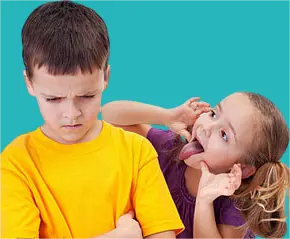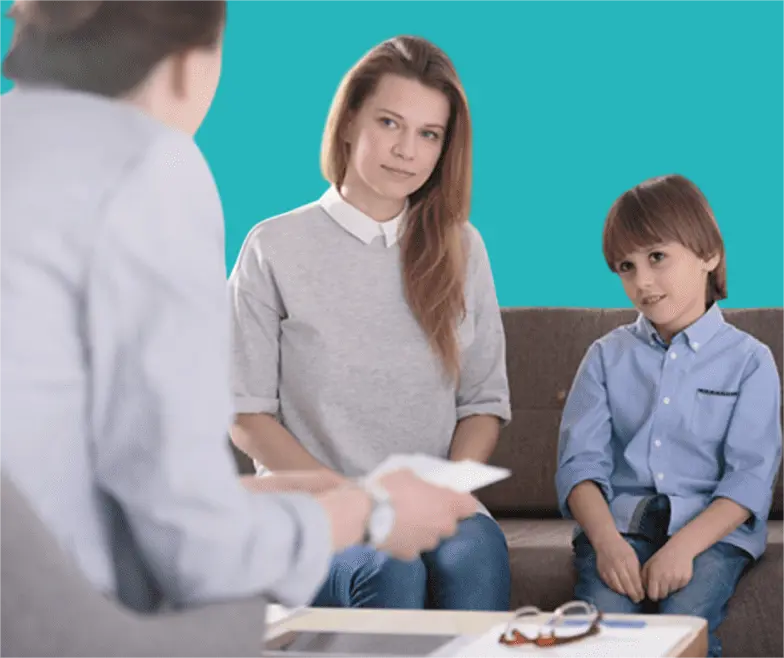Behavioral disorders are one of the most common psychological challenges that children may face at various stages of their development. This disorder not only affects the child themselves, but also extends to the family, school, and surrounding community.
These disorders manifest in various forms, such as aggression, rebellion, lying, or stealing property. Understanding the nature of this disorder helps in dealing with it early and effectively.
What is behavioral disorder in children?
Behavioral disorder is a recurring pattern of socially unacceptable behavior that conflicts with prevailing rules and norms. The affected child is characterized by stubbornness, aggression, persistent rebellion against instructions, and disrespect for the rights of others. The severity of these behaviors varies from child to child and may be mild or severe and require specialized intervention.
Causes of behavioral disorders in children

Several factors can cause behavioral disorders in children, including:
- An unstable family environment, such as divorce or domestic violence.
- Harsh or overly permissive parenting.
- Neglect of the child and failure to meet their emotional needs.
- Problems at school, such as bullying.
- Genetic or neurological factors that affect brain chemistry.
- Exposure to early psychological trauma.
How does behavioral disorder manifest in a child?
The manifestation of behavioral disorder in a child is evident through:
- Repeated severe temper tantrums.
- Defying orders and refusing rules.
- Harming oneself or others physically or verbally.
- Repeated lying and stealing.
- Trusting from school and academic failure.
- Social isolation or negative friendships.
- Risk behaviors such as setting fires or torturing animals.
Methods for Diagnosing a Child with a Behavioral Disorder
Diagnosis is made through several methods, including:
- Behavioral assessment through sessions with the child and their family.
- Using standardized behavioral scales by a psychologist.
- Gathering information from the school and teachers.
- General neurological and psychological examination.
- Ensuring the absence of organic diseases causing these behaviors.
Are there complications of behavioral disorder?
Yes, if not intervened early, it can lead to:
- Engaging in criminal behavior in adolescence.
- Drug and alcohol abuse.
- Academic failure and dropping out of school.
- Other mental health disorders such as anxiety and depression.
- Difficulty building healthy relationships in the future.
Medications to Treat Behavioral Disorder in Children

There are several medications that can be used for treatment, including:
- Antidepressants in the presence of coexisting mood disorders.
- Medications that regulate brain activity, such as some antipsychotics.
- Medications that calm hyperactivity and impulsivity.
Important Warning: Please do not take any medication without consulting a qualified psychiatrist.
Non-Pharmacological Treatments for Behavioral Disorder
There are several methods that are a much better option than medication for treatment, including:
- Cognitive behavioral therapy to change the child's way of thinking and behavior.
- Behavioral modification sessions with a psychologist.
- Family therapy to change the dynamics of relationships within the home.
- Training the child in social skills and problem-solving.
- Special educational support if the child has learning difficulties.
Tips for Prevention and Reducing the Chances of Developing a Disorder
A child can be prevented from developing a behavioral disorder by:
- Providing a stable, loving, and supportive family environment.
- Establishing clear rules and enforcing them firmly and compassionately.
- Encouraging the child to express their feelings in a healthy way.
- Monitoring their relationships and friendships without repression.
- Encouraging them to engage in beneficial activities such as sports and art.
- Continuous communication between the family and the school to monitor the child's behavior.
How this disorder affects the child's life
A behavioral disorder can affect a child's life as:
- The child may feel isolated and unaccepted by others.
- Their self-confidence is affected by repeated reprimands and rejection.
- They may experience academic and social failure.
- Their relationship with their family may be strained due to constant misunderstandings.
- The child's opportunities for psychological and social development are limited if they do not receive appropriate support.
How Parents Deal With a Child's Disorder
Parents should follow several methods to deal properly with their child, including:
- Listening to the child without judgment.
- Don't just focus on bad behavior, but rather reinforce good behavior.
- Set a good example in dealing with problems.
- Seek professional help when observing troubling behaviors.
- Be patient and consistent in applying positive parenting methods.
Article Summary
Behavioral disorders in children are a treatable psychological problem if addressed early and seriously. Its causes include psychological, social, and genetic factors, and its symptoms manifest in aggressive and rule-defying behavior.
Accurate diagnosis and appropriate treatment play a fundamental role in improving a child's condition. Prevention begins with the family, and parental support is the cornerstone of restoring balance to a child's behavior and helping them adapt and grow healthily.